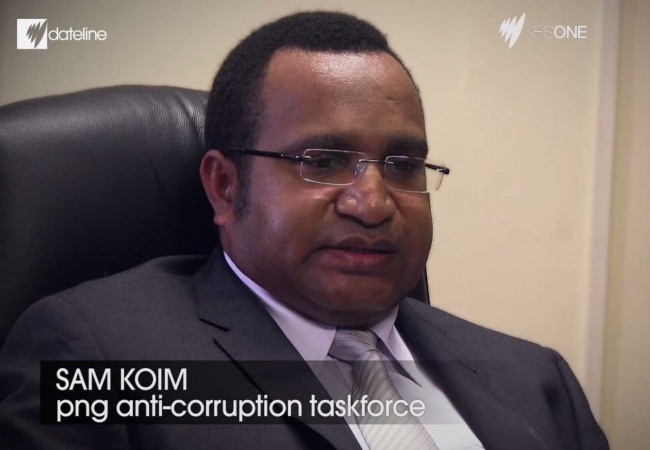
Dateline’s ‘Dirty Money’ raises hopes – and questions
Fresh reports on dirty money syndicates has created a ripple of hope among anti-corruption cam-paigners in Papua New Guinea and Australia. But will the voices calling for action be stifled or will they lead to better governance?
Fairfax Media and SBS ran stories (here and here) this week showing how Australia is used as a safe haven for corrupt funds from overseas. A secret sting operation, conducted by NGO Global Watch, showed a pair of top lawyers explaining how some leaders ‘steal money from their own people and park it in bank accounts in Australia.’
The SBS Dateline episode is worth watching online: the transcript is shocking and raises more questions than answers.
The reaction from Papua New Guineans on social media has been swift and sharp: with hundreds of likes, shares and comments. These voices of concern are important and need to be heard.
There is frustration at the weakness of PNG’s law enforcement agencies, but also pride in those that put their lives and careers on the line to fight corruption.
There is disappointment at the seeming complicity of the Australian government. As a young PNG academic asked, ‘why is Australia aiding and abetting corruption while thousands are dying in rural PNG?’
And there are calls for action to be taken both in PNG and Australia to investigate the claims of money laundering and bring perpetrators to justice.
The question that we have been asked repeatedly in the last few days is: will the new evidence and energy change anything?
There are reasons to be wary—a lack of political will, the long-running Manus Island affair and in-conclusive evidence—but there are also reasons to be hopeful. Let us conclude with the latter.
First, the reports have drawn attention towards criminal networks operating between PNG and Australia. In the short term, although they may not lead to successful prosecutions, the reports may force perpetrators at least to keep their heads down or charge more for their services. The risk—and therefore the cost—of corrupt business practices have gone up.
Second, the issue rightly repels people and provokes an emotional response. If the comments on social media are anything to go by, then there is a growing awareness that people need to speak up and take action. If enough people do so visibly and vocally, a tipping point in the fight against corruption could be reached.
Thirdly, Papua New Guineans can rightly take pride in those who fight daily to protect and serve the country against predatory forces that steal and diminish people’s rights. The recent reports and interest in the issues provide a timely boost to morale.
Finally, reports of money laundering are just one part of a bigger picture—a double standard whereby rich countries preach good governance, yet apparently turn a blind eye to the proceeds of corruption. Reports such as the ones provided by Global Witness will give greater weight to calls for rich countries to do more to disrupt and degrade transnational criminal networks and to discourage corrupt behaviour.
The Australian government faces a tough choice: keep quiet and be accused of complicity in corruption, or take action and potentially upset some ‘big mouths’.
In reality though, the choice isn’t that stark.

